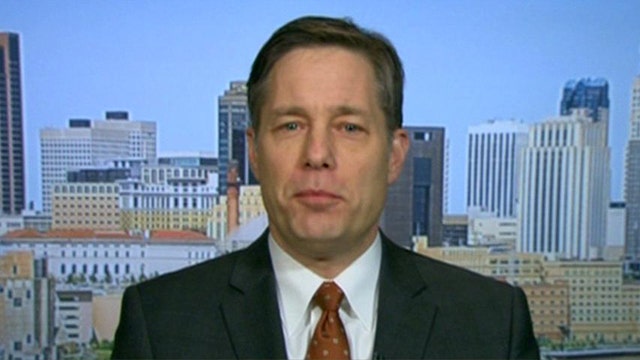Q&A With Morningstar's Domestic-Stock Fund Manager of the Year
Mairs and Power's Mark Henneman and Bill Frels were named Morningstar's Domestic-Stock Fund Managers of the year for 2012.
Morningstar gives the St. Paul, Minnesota-based Mairs & Power growth fund (MPGFX) five stars. The $2.8B fund has 92% of its assets invested in stocks and has beaten the S&P 500 with a 9.65%annualized gain over the past 10 years.
Mark Henneman joined the FOX Business Network for an interview Tuesday.
WHAT MAKES MAIRS & POWER GROWTH FUND’S INVESTMENT STRATEGY UNIQUE?
There are a few differentiating factors in the way we manage the growth fund, starting with the long-term nature of the fund. We buy and hold stocks for a long period of time. Our turnover is less than 5% and the typical mutual fund’s turnover is close to 100%. We also invest quite a bit in companies that have headquarters close to St. Paul. We really get to know these companies well and the benefits of proximity are huge. The key is knowing your companies well and owning them for a long period of time. We invest very differently than the typical mutual fund -- we have a low-turnover approach to investing.
WHAT NAMES DO YOU LIKE RIGHT NOW?
We like Donaldson Company (NYSE:DCI) and Target (NYSE:TGT).
WHY DONALDSON?
We’ve held it for a long period of time. It’s attractive right now because its business with large off-road vehicles slowed down last year, but that business will firm up going forward. It also provides filtration systems for gas turbines and will benefit from the growth in turbine implementation.
WHY DO YOU LIKE TARGET? It’s another company we’ve held for a long period of time. The reason it’s attractive is investors viewed the holiday selling season as being a bit disappointing, but we’re not concerned about that. We think Target will take advantage of a big rollout into the Canadian market, which we think will go well. Target is down because we had a disappointing Christmas, but Canada is a big opportunity that we think people are under-appreciating
ARE STOCKS STILL ATTRACTIVE WHEN MARKETS ARE AT MULTI-YEAR HIGHS?I think that it’s certainly possible; we don’t have long-term concerns. We’re still able to find attractive opportunities and are comfortably putting money into individual stocks even at these prices. We’re looking for companies that have the ability to grow at a pace that’s faster than overall corporate profitability. We’re looking at companies that can do that for a long period of time, have a competitive advantage that’s going to last. We’re looking for above-average returns, but do qualitative assessment on how likely competitors are going to come in and compete away the advantage that they’ve got.
WHAT’S THE BIGGEST MISTAKE INVESTORS MAKE?
It’s probably the timeframe: it’s become too short, people are expecting results too quickly. We look to own companies for five to 10 years and often own stocks for longer than that. The short-term is murky, but the long-term is always clear. We’re very long-term investors.
WHAT’S YOUR ADVICE TO INVESTORS CLOSE TO RETIREMENT?
I think that someone who is close to retirement still has the need to own equities. They can transition part of their portfolio to bonds, but most people live a long time and assets have to rise over and above inflation. The best way to ensure that is most likely by owning stocks.




















